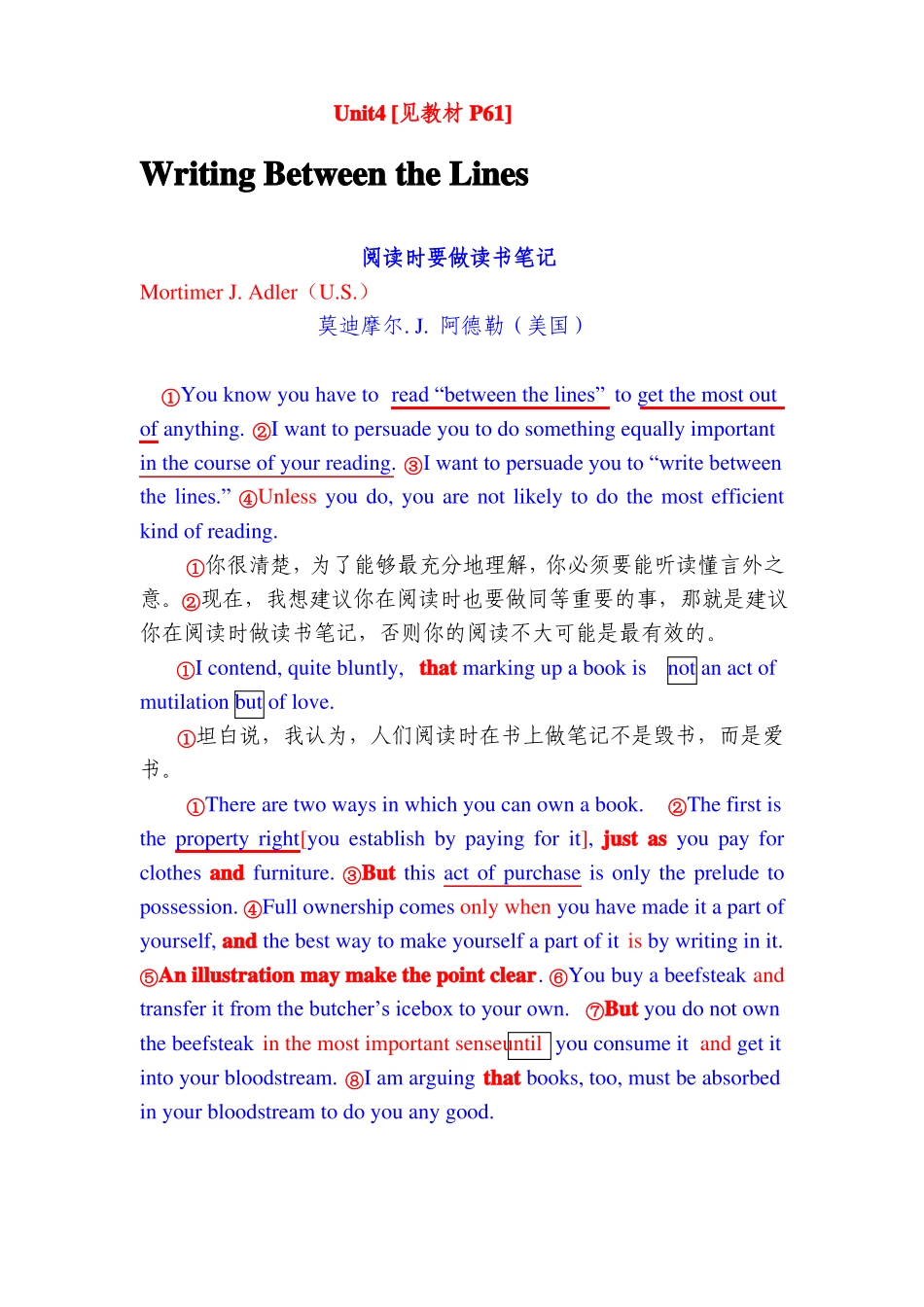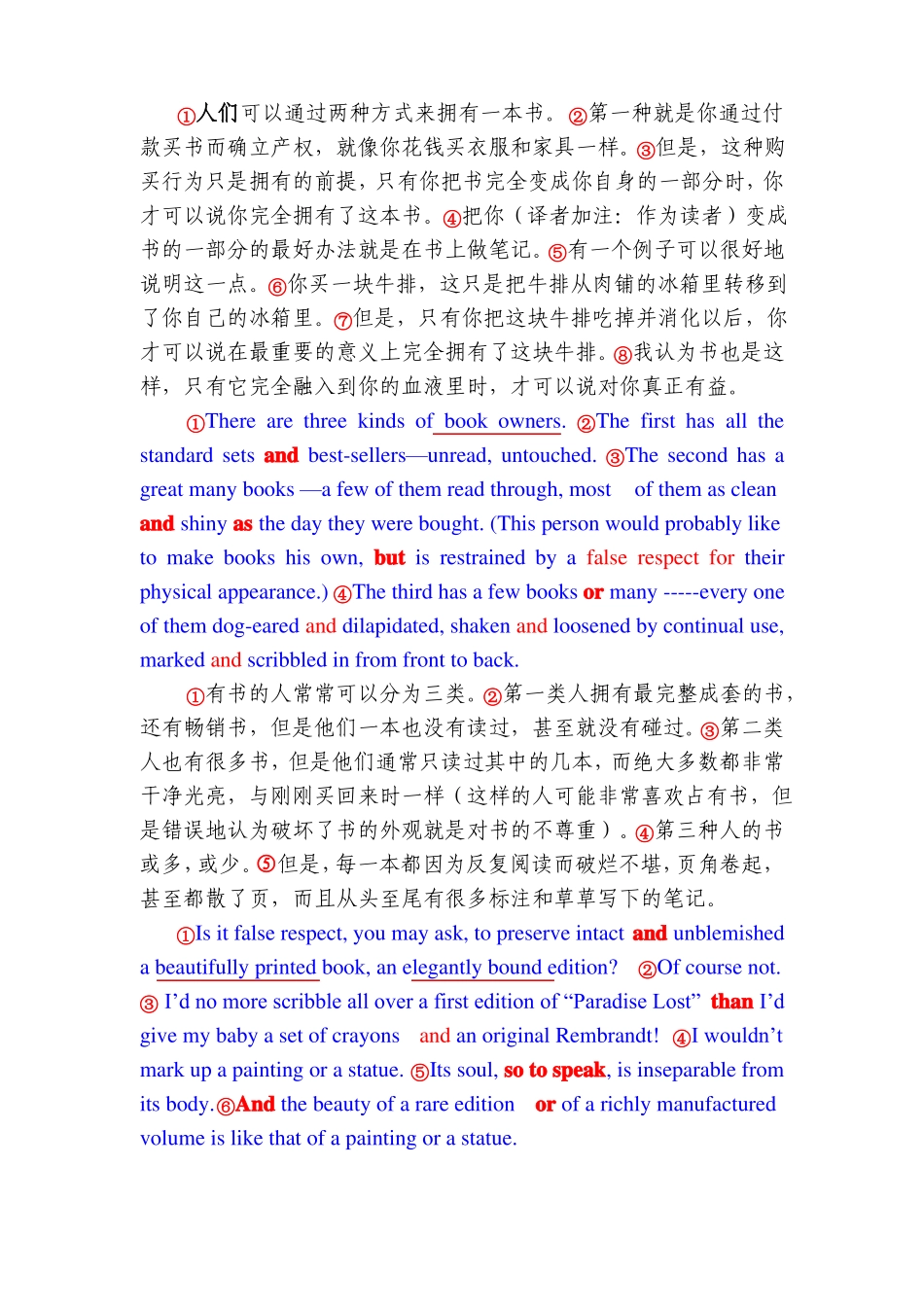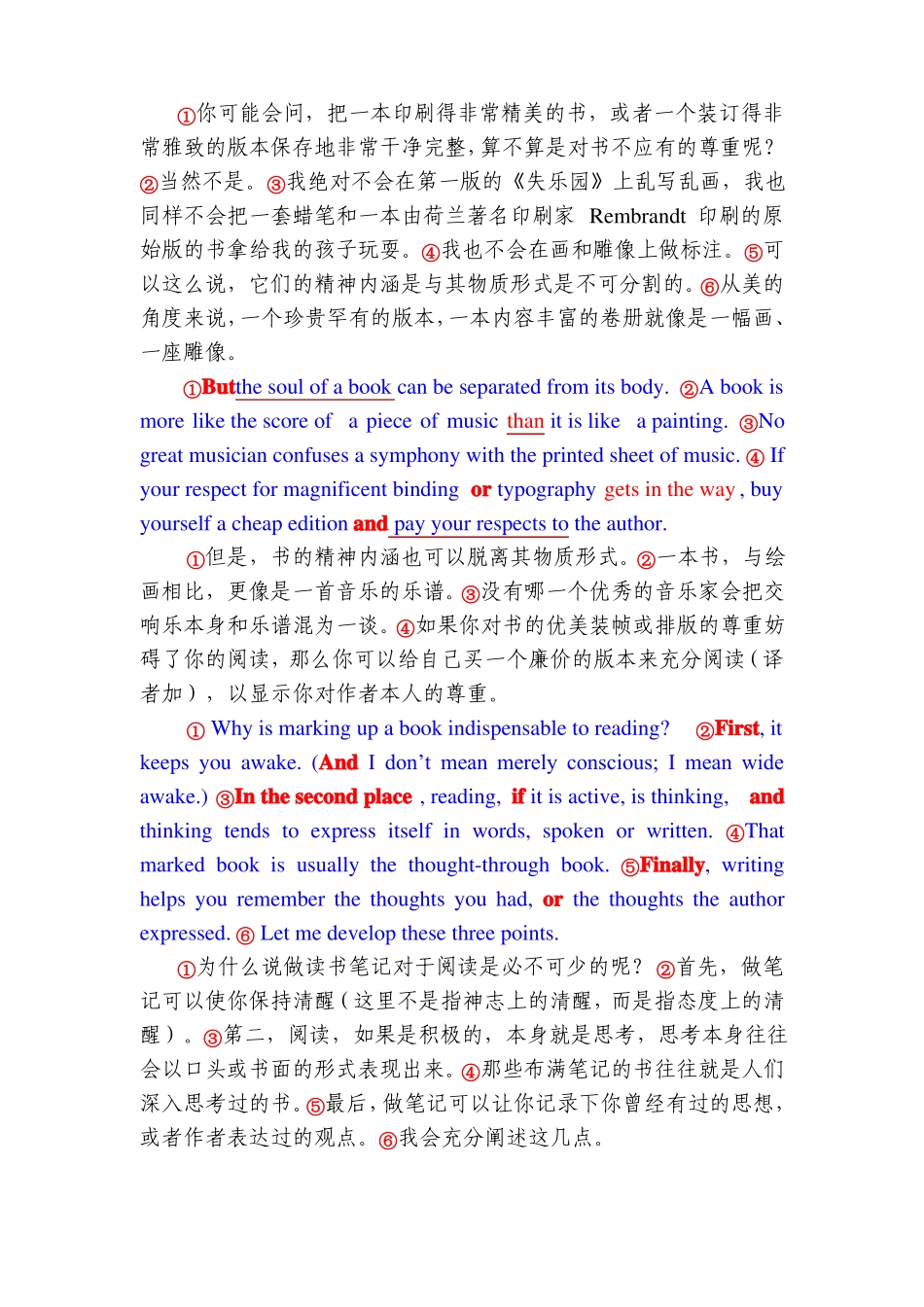Unit4 [见教材 P61]Writing Between the Lines阅读时要做读书笔记Mortimer J. Adler(U.S.)莫迪摩尔. J. 阿德勒(美国)①You know you have to read “between the lines” to get the most outof anything. ②I want to persuade you to do something equally importantin the course of your reading. ③I want to persuade you to “write betweenthe lines.” ④Unless you do, you are not likely to do the most efficientkind of reading.①你很清楚,为了能够最充分地理解,你必须要能听读懂言外之意。②现在,我想建议你在阅读时也要做同等重要的事,那就是建议你在阅读时做读书笔记,否则你的阅读不大可能是最有效的。①I contend, quite bluntly, that marking up a book isnot an act ofmutilation but of love.①坦白说,我认为,人们阅读时在书上做笔记不是毁书,而是爱书。①There are two ways in which you can own a book.②The first isthe property right[you establish by paying for it], just as you pay forclothes and furniture. ③But this act of purchase is only the prelude topossession. ④Full ownership comes only when you have made it a part ofyourself, and the best way to make yourself a part of it is by writing in it.⑤An illustration may make the point clear. ⑥You buy a beefsteak andtransfer it from the butcher’s icebox to your own.⑦But you do not ownthe beefsteak in the most important senseuntil you consume it and get itinto your bloodstream. ⑧I am arguing that books, too, must be absorbedin your bloodstream to do you any good.①人们可以通过两种方式来拥有一本书。②第一种就是你通过付款买书而确立产权,就像你花钱买衣服和家具一样。③但是,这种购买行为只是拥有的前提,只有你把书完全变成你自身的一部分时,你才可以说你完全拥有了这本书。④把你(译者加注:作为读者)变成书的一部分的最好办法就是在书上做笔记。⑤有一个例子可以很好地说明这一点。⑥你买一块牛排,这只是把牛排从肉铺的冰箱里转移到了你自己的冰箱里。⑦但是,只有你把这...


